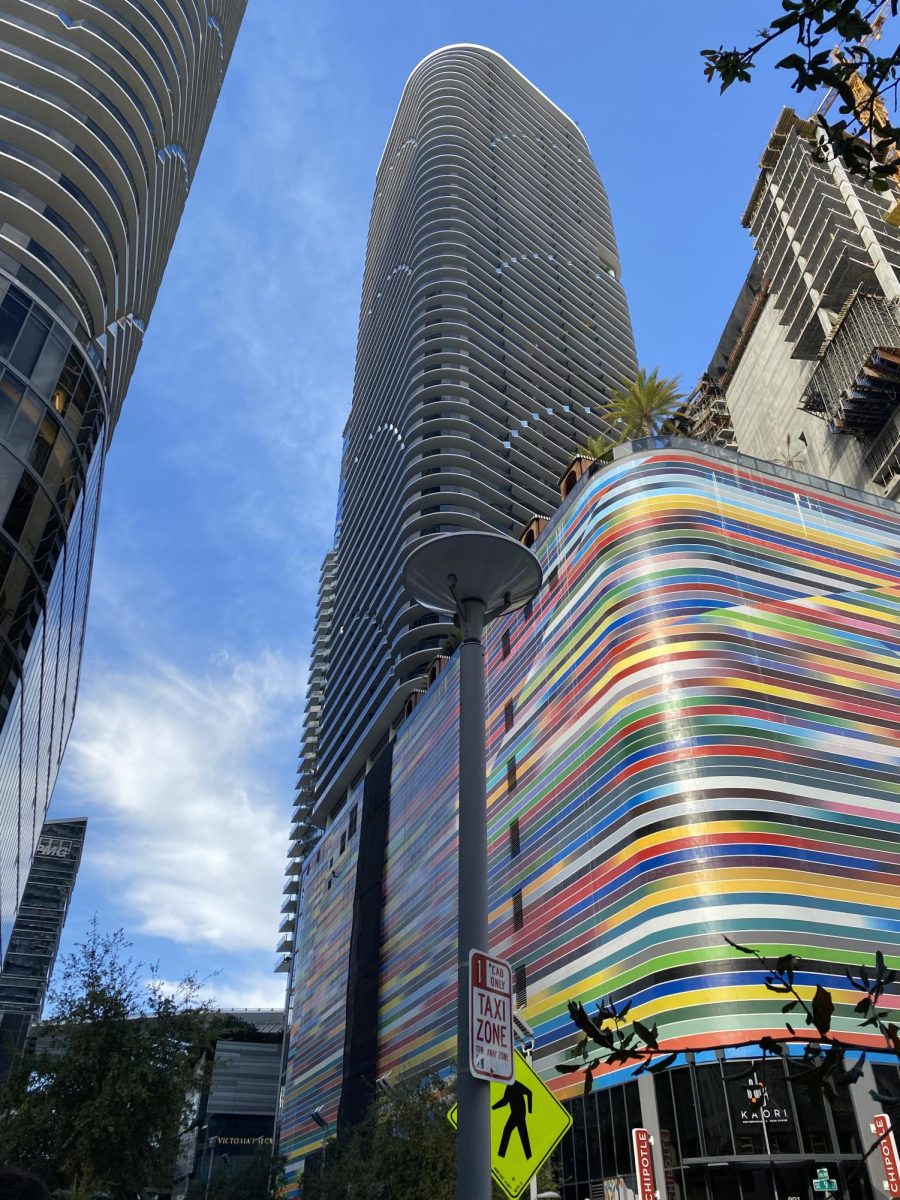On Oct. 27, former President Donald Trump held a rally at Madison Square Garden in New York City. Among the speakers, one comedian, Tony Hinchcliffe, showed up with a pocket full of bigoted jokes. One that sparked media attention and public outrage was about United States’ territory, Puerto Rico, calling it a floating island of garbage. The jokes told by Hinchcliffe are not anything new for the field of comedy, but rather show the line that the public sees, but not the perpetrator.
Comics criticizing or making fun of politicians and current events is not new, and not unfamiliar to the American people. Television has thrived because of shows that mock politics. Saturday Night Live has spent the past 50 years opening up the show with a cold open, typically playing at a current political event from that week. The show also contains a portion called Weekend Update, which jokes about the news that happens that week. Since Trump’s first presidency in 2016, Weekend Update has joked about his time in office, along with others in politics and past presidents. Comedians like Jon Stewart and Bill Maher have also created their careers off their political satire shows.
Not only do many comedians thrive with the ability to criticize politics, but they have their First Amendment right to do so. However, their right to speak freely about anything does not give them the right to make comments that are plainly prejudiced. Not only do they hurt themselves and their careers with the comment, but they largely affect the community that the “joke” was aimed at.
Other comedians have used their platforms and shows to spew hateful comments toward marginalized communities. Dave Chappelle, for example, has targeted the transgender community in multiple jokes for the past few years. In his December 2023 special, The Dreamer, he joked about not making anti-trans comments anymore, stating that he “doesn’t need them” to be funny. Later in the special, he continued to make jokes about the handicapped community. Chappelle does have a point, though. He does not need to make these communities the butt of the joke and spread hateful rhetoric, even if it seems like a joke to him.
However, Jon Stewart uses his own show, “The Daily Show,” as a way to discuss politics and create jokes about different communities and current events without creating harmful rhetoric. Joining the show in 1999, Stewart used it as a way to mesh comedy and the news, much like SNL’s Weekend Update. Since then, he covered multiple presidential elections and other events that have occurred like 9/11. But even with the jokes he makes, he does not bring hate speech into it, unlike comedians like Hinchcliffe who make it their whole set.
Surrounding the Madison Square Garden rally, Stewart came out saying that the public should not pay attention to Hinchcliffe and the other jokes that were made that night, but rather to Trump and his personal statements.
I agree. No comedian truly cares about the backlash they receive based on their hateful comments, and they genuinely just talk to talk. Instead, Stewart stating that the public should focus on Trump is correct. Rather than hating on a Z-list celebrity who just wants his one minute of fame within the MAGA community, we need to stop the hateful rhetoric being spewed by our newly re-elected president.
At the end of the day, there is no line for comedians that they cannot cross. Even with protests to stop the harmful rhetoric that some spew, they will never cut it out of their set because to them the bigotry is all a “joke.” Rather, the public should focus on those in power who actually could enact and do the hateful things that they preach in their speeches and legislation.






